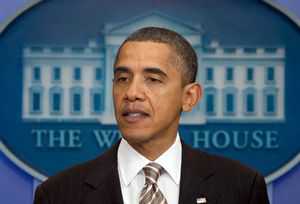“Very different from most American politicians”
He was Jimmy Carter’s National Security Advisor, a hawk in terms of foreign policy. In an interview with Stern magazine Zbigniew Brzezinski explains why President-elect Obama reminds him of John F. Kennedy, what he expects from the new administration’s foreign policy – and why the US will demand a greater European military commitment in Afghanistan
I was with friends, watching television. I had predicted his win. But when it actually really happened, it was exactly 11.01 p.m., I was very moved.
I saw the faces of so many citizens, black and white, reacting to their choice. And it just dramatized to me, that this was really a historically significant election. We might witness the birth of a 21st century America. In fact, this election could define America as the prototype of an eventual global society.
I cannot imagine another country, neither in Europe, neither in Asia, which could have elected someone as uniquely different as Barack Obama is. Barack Hussein Obama is accepted and cherished, really cherished, because he epitomizes the unique diversity of American society and shares the dominant values of that society.
Racial equality, a basic commitment to democracy, a notion of elementary social justice. The notion that some people should not be allowed to be as poor as they are – and that some are not entitled be quite as rich as they think they can be.
I met him last year, and he made the best impression on me of anyone since John F. Kennedy. He is better equipped in intellect and temperament for the highest office than anyone I can think of in recent memory. He is very different from most American politicians.
A kind of intellectual self-confidence, which reflects real intelligence, not arrogance. A friendliness – but with a distance and a dignity. A little patrician, almost. And a calculating rationality. He does not wave the do-gooders flag. He is an idealist, but not an ideologue. He knows, that compromises will be needed.
No. That’s nonsense and often said with a lot of schadenfreude. The matter of fact is, that the era of American superpower stupidity is over, the time of self-isolation. Under President Bush, we acted arrogant, unilateralist and – worst of all – driven by fear. A culture of fear was cultivated by this administration, which replaced the Statue of Liberty as a symbol for America with Guantanamo. America has lost its confidence. This is one of the worst legacies of the Bush era. But that will come to an end now, very quickly.
He will inherit a grim reality. But the painful financial crisis also teaches us an important lesson: without America the world is in trouble. If America is declining, the rest of the world is falling apart. And have no illusions: the German economy will not recover without an American recovery. America can recover without Germany. At the same time, we understand: we have to cooperate with the world in order to do well.
Afghanistan is certainly one of them. There, for he time being, we would need to deploy more troops. But more soldiers are not the solution. The solution is a demilitarization of our engagement.
By negotiating wit the various groups of Taliban. We should be able to reach local and regional arrangements with them. If they would stop al-Qaeda activities, for example, we would locally disengage.
No. Nato has to continue our military activities in the meantime. And if we are serious about our alliance and about consultations, we have to be also serious about sharing burdens. You cannot have arrangements, where some soldiers risk their lives day and night and some soldiers cannot even go on patrols at night. That is not an alliance.
The American people expect this. If the Europeans want to give us only nice advise, but expect us to do the heavy lifting – then don’t expect America necessarily to listen to these advises. Europeans will no longer have the alibi of Bush’s bad policy. But let’s be clear: there are no alibis for us any more, either. We will have to consult, share decisions and cooperate.
Yes, but I think we can relax.
Russia is a country with enormous problems. Its leaders should know, that Russia cannot isolate itself from the world or base its foreign policy on the assertion that it is entitled to an imperialist sphere of influence. It is baffling to me, how unintelligent its leaders are. Self-isolation will be destructive for Russia, not for us.
We need a more realistic, a more flexible and sensible approach. We should negotiate; we might negotiate even without preconditions. A successful approach to Iran has to accommodate its security interests and ours. This new diplomatic approach could help bring Iran back into its traditional role of strategic cooperation with the United States in stabilizing the Gulf region. This would be a sensible path.
Interview: Katja Gloger
Source: www.stern.de, 14. November 2008
